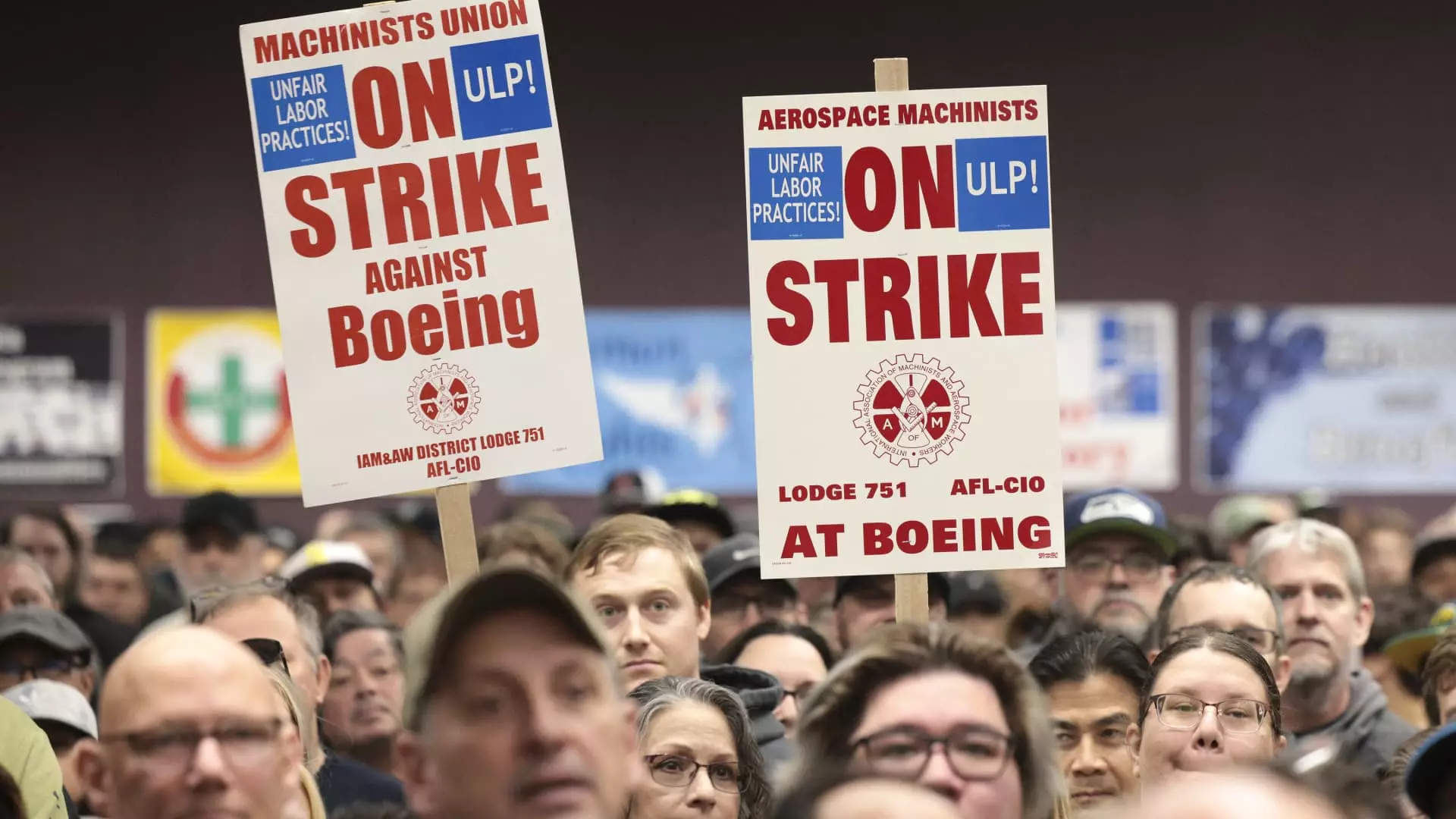In a significant development, Boeing and its machinists’ union have announced a tentative contract proposal, potentially bringing an end to a strike that has severely disrupted aircraft production for more than a month. The strike, which commenced on September 13, 2024, involved over 30,000 machinists who initially rejected a prior agreement offering a 25% wage increase over four years. Now, the new contract proposal, set for a ratification vote on Wednesday, offers a more appealing arrangement, which could prove pivotal for both the company and its workforce.
The proposed contract is a substantial improvement over earlier negotiations, featuring ambitious wage increases of 35% spread over four years. Additionally, employees would receive a signing bonus of $7,000, bolstered annual bonus program payouts, and increased contributions to 401(k) retirement plans. These enhancements reflect a concerted effort by Boeing to entice its employees back to work while simultaneously aiming to stabilize its production lines. Julie Su, the Acting U.S. Secretary of Labor, played a key role in facilitating negotiations, emphasizing the importance of this resolution for both sides.
The International Association of Machinists and Aerospace Workers District 751 expressed cautious optimism regarding the new contract, stating that it warrants consideration by union members. The leadership from the union is encouraging workers to review the proposal thoughtfully, recognizing it as a product of negotiations rather than an unsolicited offer. This statement signals a shift in the union’s approach, showcasing a willingness to compromise for the greater good of its members and the stability of the aerospace giant.
However, the contract proposal comes in the context of Boeing’s ongoing financial challenges. The company has been grappling with a safety crisis stemming from a serious incident involving one of its 737 Max aircraft earlier in the year. Moreover, Boeing has forecasted a substantial loss of approximately $5 billion in its commercial and defense sectors. These pressing issues highlight the urgency of the situation, as the company aims to stabilize its operations while ensuring its workforce feels valued and secure. New CEO Kelly Ortberg, who assumed leadership in August, faces the daunting task of reshaping Boeing during a tumultuous period, making the successful ratification of this contract vital.
A favorable outcome from the ratification vote on Wednesday would mark a significant victory for both Boeing and its employees. If successful, this contract could foster a renewed sense of collaboration and morale within the company, laying the groundwork for a more stable future. The labor relations landscape in aerospace manufacturing is changing, with companies and unions exploring more equitable agreements amidst economic and operational pressures. With the eyes of the industry on Boeing, the coming days will reveal whether this proposal successfully bridges the gap between labor and management or leads to further unrest.


Leave a Reply